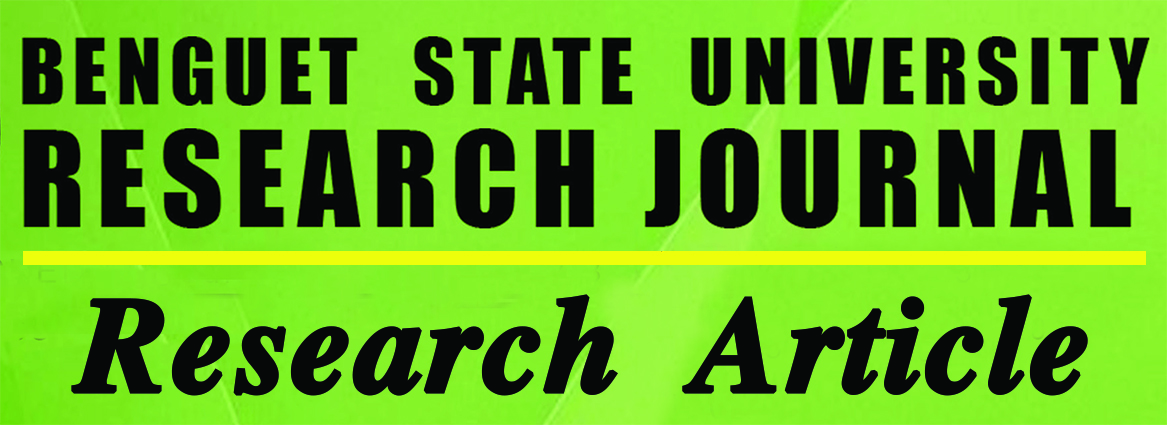Status and Description of the Textile Industry in Baguio City and Benguet Province
Main Article Content
Abstract
This study was done to assess the status and describe the textile industry in Baguio City and Benguet Province, and to identify research and development areas towards improving the industry in the light of bringing back the grandeur of the Cordillera region. Data was generated through: rapid market walks, library research, field visits, and informal interviews of the selected industry players.
The textile industry in Benguet includes the components of sericulture, yarn trading, thread and textile factory trimmings, weaving, processing or manufacturing of made-up textile products, wholesaling and retailing of finished products, and the processing of maguey or sisal fibers.
The sericulture industry is still in its infancy of development with 9.73 hectares of mulberry farms as of 2008 which is expected to increase to 26ha by 2010. Silkworm rearing resulted to a production of 657 kilograms of silk cocoons (2009) and 56kg of raw silk fibers in 2008, produced by members of the Kapangan Environmental Livelihood and Multipurpose Cooperative (KELMC).
Growth in the tourism industry spurred the establishment, and currently influencing the status of the textile industry in Baguio and Benguet. It made possible for the expansion of trade in imported thread and raw materials among 31 entrepreneurs and manufacturers of textile goods providing job opportunities. There were 108 individuals and associations included in the Department of Trade and Industry (DTI) listing of registered firms but as many as 515 individuals are formally and informally engaged in manufacturing, which includes the weaving, knitting, crocheting and the creation of made-up textile goods or novelty items. Those engaged in wholesaling and retailing of manufactured textile products includes 253 establishments. Their contribution to employment and the economy could easily reach more than PhP133 million per year.
Maguey or sisal fiber processing became an obsolete home industry among the old folks in Bokod and Kabayan with the introduction of cheaper polypropylene ropes.
Lack of support on marketing and technology, slow turn-over of capital, and the unstable and increasing cost of threads, yarns or textile fibers are some issues the textile industry in Baguio and Benguet is facing.

